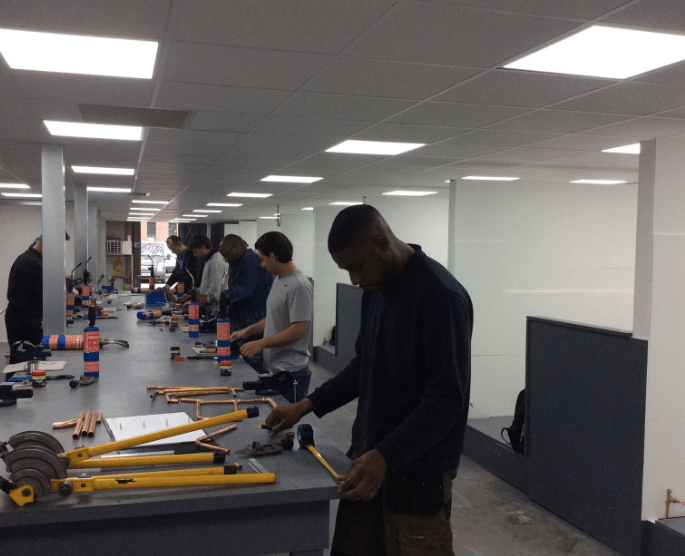
How to become a plumber?
Learning a trade can be a great way to start a rewarding career. To become a plumber in the UK, you usually have to follow a structured path that involves training, gaining practical experience, and obtaining relevant qualifications.
Education
If you are thinking of becoming a plumber, then maths, technology and science are extremely useful subjects to take for GCSEs. Vocational plumbing courses offered by colleges, trade schools or training providers are extremely valuable and will increase your knowledge of the subject, allowing you to become certified in drainage systems, water and how to use piping equipment.
Apprenticeships
After completing vocational training, the next step would be a plumbing apprenticeship, which combines on-the-job training with classroom instruction. Contact reputable plumbing companies to see if they offer apprenticeship programmes.
Gaining experience as an assistant
How do you fit copper pipe connectors? Which suppliers provide copper pipe connectors? Why would you use copper pipe connectors? During your apprenticeship, you will work alongside experienced plumbers, learning the essential skills and techniques of the trade. They will answer all the questions you have! Fast-track courses may be available, enabling you to work as a plumber’s assistant or a plumber’s mate.
Gaining professional experience and qualifications
There are various qualifications recognised in the plumbing industry. The most common qualifications are City & Guilds or NVQ (National Vocational Qualification) in Plumbing. The highest rank you can attain is the role of a master plumber, which receives higher pay and more benefits.
It is also important to register with a recognised professional body, such as the Chartered Institute of Plumbing and Heating Engineering (CIPHE) or the Association of Plumbing and Heating Contractors (APHC) Membership in these organisations demonstrates your commitment to professionalism. It also shows customers that you are qualified and accredited.
It’s worth noting that the requirements and regulations may change over time, and also vary depending on the region you live in. If you are thinking of becoming a plumber, then contact local plumbing trade associations or training providers in the area to see what they offer.









